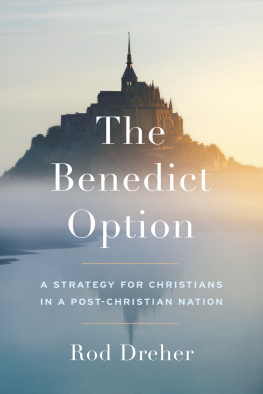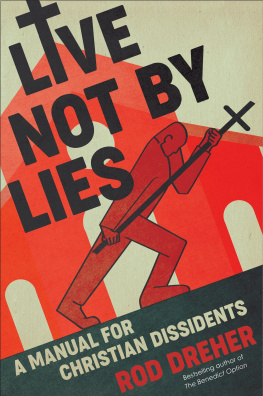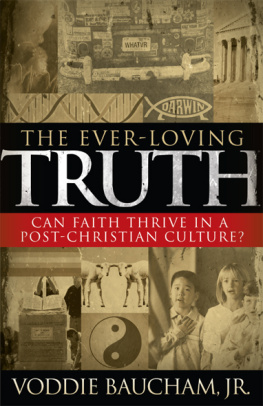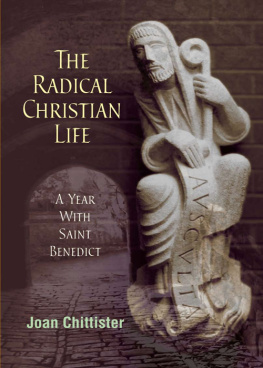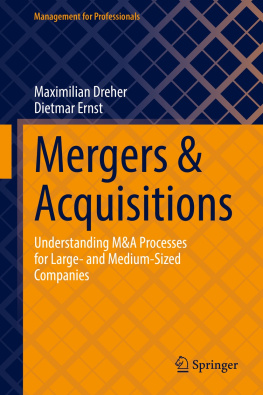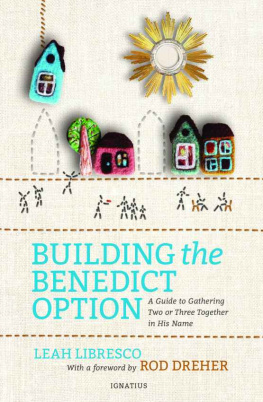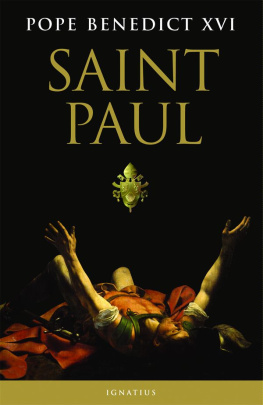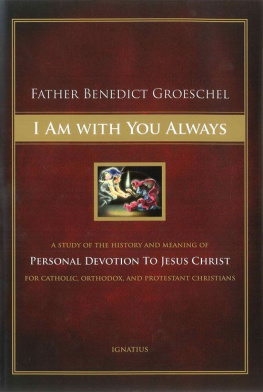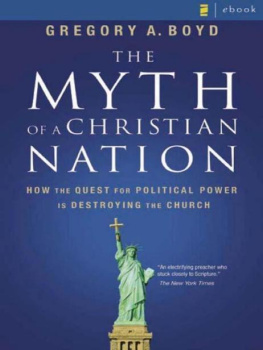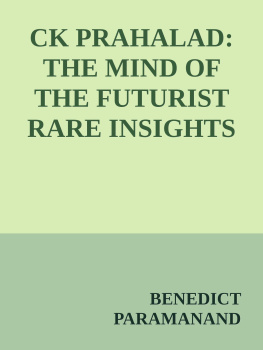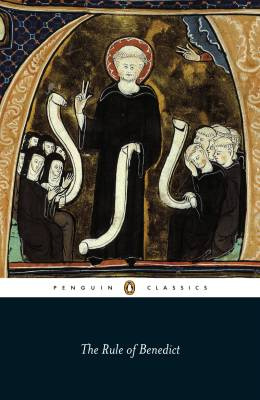Rod Dreher - The Benedict Option: A Strategy for Christians in a Post-Christian Nation
Here you can read online Rod Dreher - The Benedict Option: A Strategy for Christians in a Post-Christian Nation full text of the book (entire story) in english for free. Download pdf and epub, get meaning, cover and reviews about this ebook. year: 2017, publisher: Sentinel, genre: Religion. Description of the work, (preface) as well as reviews are available. Best literature library LitArk.com created for fans of good reading and offers a wide selection of genres:
Romance novel
Science fiction
Adventure
Detective
Science
History
Home and family
Prose
Art
Politics
Computer
Non-fiction
Religion
Business
Children
Humor
Choose a favorite category and find really read worthwhile books. Enjoy immersion in the world of imagination, feel the emotions of the characters or learn something new for yourself, make an fascinating discovery.
- Book:The Benedict Option: A Strategy for Christians in a Post-Christian Nation
- Author:
- Publisher:Sentinel
- Genre:
- Year:2017
- Rating:4 / 5
- Favourites:Add to favourites
- Your mark:
- 80
- 1
- 2
- 3
- 4
- 5
The Benedict Option: A Strategy for Christians in a Post-Christian Nation: summary, description and annotation
We offer to read an annotation, description, summary or preface (depends on what the author of the book "The Benedict Option: A Strategy for Christians in a Post-Christian Nation" wrote himself). If you haven't found the necessary information about the book — write in the comments, we will try to find it.
Rod Dreher: author's other books
Who wrote The Benedict Option: A Strategy for Christians in a Post-Christian Nation? Find out the surname, the name of the author of the book and a list of all author's works by series.
The Benedict Option: A Strategy for Christians in a Post-Christian Nation — read online for free the complete book (whole text) full work
Below is the text of the book, divided by pages. System saving the place of the last page read, allows you to conveniently read the book "The Benedict Option: A Strategy for Christians in a Post-Christian Nation" online for free, without having to search again every time where you left off. Put a bookmark, and you can go to the page where you finished reading at any time.
Font size:
Interval:
Bookmark:

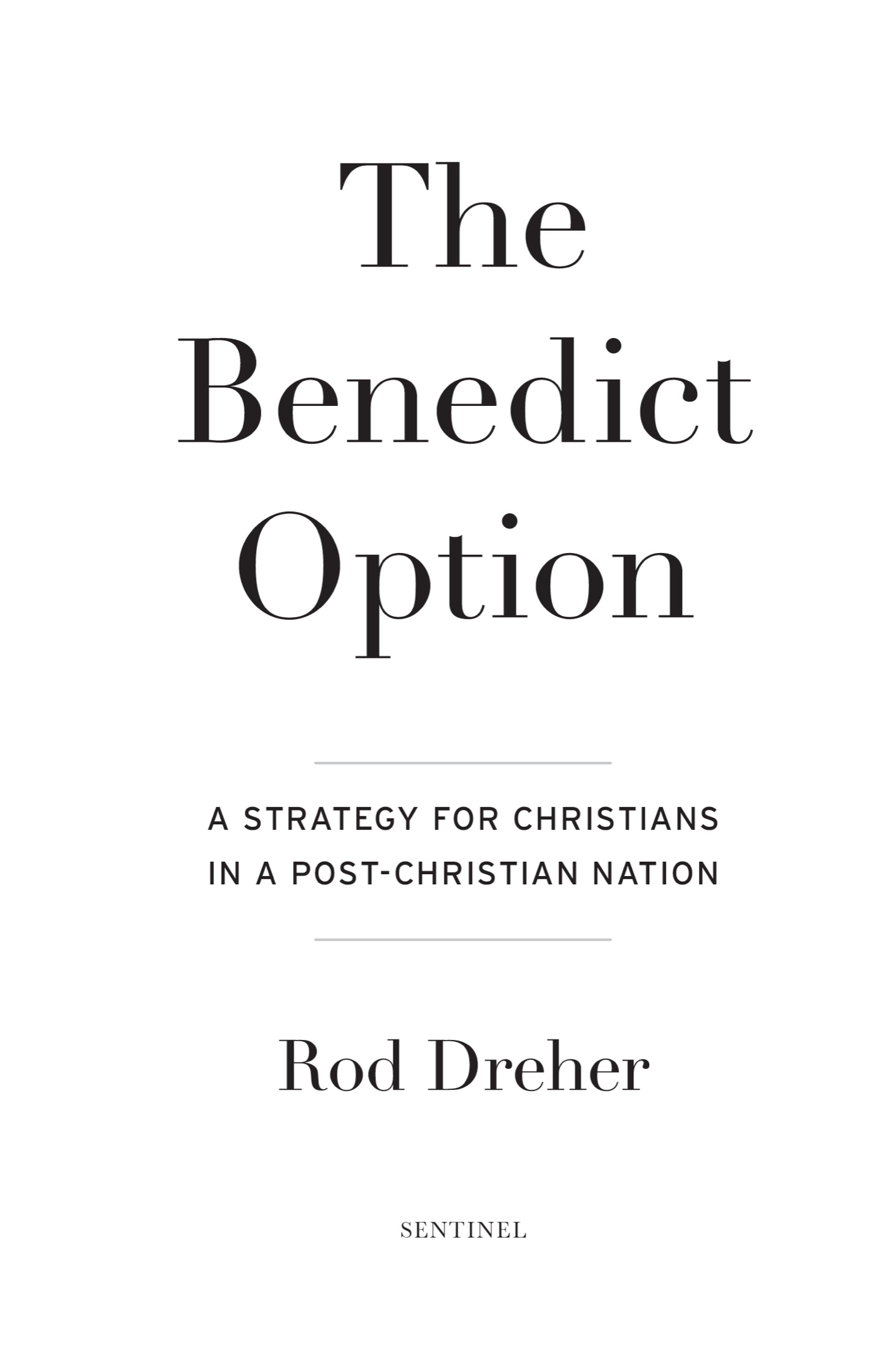

An imprint of Penguin Random House LLC
375 Hudson Street
New York, New York 10014
Copyright 2017 by Rod Dreher
Penguin supports copyright. Copyright fuels creativity, encourages diverse voices, promotes free speech, and creates a vibrant culture. Thank you for buying an authorized edition of this book and for complying with copyright laws by not reproducing, scanning, or distributing any part of it in any form without permission. You are supporting writers and allowing Penguin to continue to publish books for every reader.
Most Sentinel books are available at a discount when purchased in quantity for sales promotions or corporate use. Special editions, which include personalized covers, excerpts, and corporate imprints, can be created when purchased in large quantities. For more information, please call (212) 572-2232 or e-mail specialmarkets@penguinrandomhouse.com. Your local bookstore can also assist with discounted bulk purchases using the Penguin Random House corporate Business-to-Business program. For assistance in locating a participating retailer, e-mail B2B@penguinrandomhouse.com.
Library of Congress Cataloging-in-Publication Data
Names: Dreher, Rod, author.
Title: The Benedict option : a strategy for Christians in a post-Christian nation / Rod Dreher.
Description: New York : Sentinel, 2017.
Identifiers: LCCN 2016053888 (print) | LCCN 2017001377 (e-book) | ISBN 9780735213296 (hardcover) | ISBN 9780735213319 (e-book)
Subjects: LCSH: Christianity and cultureUnited States. | Benedict, Saint, Abbot of Monte Cassino. Regula. | BenedictinesRules. | Monasticism and religious ordersRules.
Classification: LCC BR526 .D735 2017 (print) | LCC BR526 (ebook) | DDC 261.0973dc23
LC record available at https://lccn.loc.gov/2016053888
Scripture quotations taken from the New American Standard Bible (NASB), Copyright 1960, 1962, 1963, 1968, 1971, 1972, 1973, 1975, 1977, 1995 by The Lockman Foundation. Used by permission. www.Lockman.org.
Version_3
For Ken Myers
Let us arise, then, at last,
For the Scripture stirs us up, saying,
Now is the hour for us to rise from sleep. (Romans 13:11)
Rule of Saint Benedict
F or most of my adult life, I have been a believing Christian and a committed conservative. I didnt see any conflict between the two, until my wife and I welcomed our firstborn child into the world in 1999. Nothing changes a mans outlook on life like having to think about the kind of world his children will inherit. And so it was with me.
As Matthew grew into toddlerhood, I began to realize how my politics were changing as I sought to raise our child by traditionalist Christian principles. I began to wonder what, exactly, mainstream conservatism was conserving. It dawned on me that some of the causes championed by my fellow conservativeschiefly an uncritical enthusiasm for the marketcan in some circumstances undermine the thing that I, as a traditionalist, considered the most important institution to conserve: the family.
I also came to see the churches, including my own, as largely ineffective in combating the forces of cultural decline. Traditional, historic Christianitywhether Catholic, Protestant, or Eastern Orthodoxought to be a powerful counterforce to the radical individualism and secularism of modernity. Even though conservative Christians were said to be fighting a culture war, with the exception of the abortion and gay marriage issues, it was hard to see my people putting up much of a fight. We seemed content to be the chaplaincy to a consumerist culture that was fast losing a sense of what it meant to be Christian.
In my 2006 book Crunchy Cons, which explored a countercultural, traditionalist conservative sensibility, I brought up the work of philosopher Alasdair MacIntyre, who declared that Western civilization had lost its moorings. The time was coming, said MacIntyre, when men and women of virtue would understand that continued full participation in mainstream society was not possible for those who wanted to live a life of traditional virtue. These people would find new ways to live in community, he said, just as Saint Benedict, the sixth-century father of Western monasticism, responded to the collapse of Roman civilization by founding a monastic order.
I called the strategic withdrawal prophesied by MacIntyre the Benedict Option. The idea is that serious Christian conservatives could no longer live business-as-usual lives in America, that we have to develop creative, communal solutions to help us hold on to our faith and our values in a world growing ever more hostile to them. We would have to choose to make a decisive leap into a truly countercultural way of living Christianity, or we would doom our children and our childrens children to assimilation.
Over the last decade, I have been writing on and off about the Benedict Option, but it never took off outside a relatively small circle of Christian conservatives. Meanwhile the Millennial generation began to abandon the church in numbers unprecedented in U.S. history. And they almost certainly did not know what they were discarding: new social science research indicated that young adults are almost entirely ignorant of the teachings and practices of the historical Christian faith.
The steady decline of Christianity and the steady increase in hostility to traditional values came to a head in April 2015, when the state of Indiana passed a version of the federal Religious Freedom Restoration Act. The law merely provided a valid religious liberty defense for those sued for discrimination. It did not guarantee that those defendants would prevail. Gay rights activists loudly protested, calling the law bigotedand for the first time ever, big business took sides in the culture war, coming down firmly on behalf of gay rights. Indiana backed down under corporate pressureas did Arkansas a week later.
This was a watershed event. It showed that if big business objected, even Republican politicians in red states would not take a stand, even a mild one, for religious freedom. Professing orthodox biblical Christianity on sexual matters was now thought to be evidence of intolerable bigotry. Conservative Christians had been routed. We were living in a new country.
And then two months later the U.S. Supreme Court declared a constitutional right to same-sex marriage. The decision was popular with the American people, which had, over the previous decade, undergone a staggering shift on gay rights and same-sex marriage. No sooner was the right to gay marriage achieved than activists and their political allies, the Democratic Party, began pushing for transgender rights.
Post-Obergefell, Christians who hold to the biblical teaching about sex and marriage have the same status in culture, and increasingly in law, as racists. The culture war that began with the Sexual Revolution in the 1960s has now ended in defeat for Christian conservatives. The cultural leftwhich is to say, increasingly the American mainstreamhas no intention of living in postwar peace. It is pressing forward with a harsh, relentless occupation, one that is aided by the cluelessness of Christians who dont understand whats happening. Dont be fooled: the upset presidential victory of Donald Trump has at best given us a bit more time to prepare for the inevitable.
Font size:
Interval:
Bookmark:
Similar books «The Benedict Option: A Strategy for Christians in a Post-Christian Nation»
Look at similar books to The Benedict Option: A Strategy for Christians in a Post-Christian Nation. We have selected literature similar in name and meaning in the hope of providing readers with more options to find new, interesting, not yet read works.
Discussion, reviews of the book The Benedict Option: A Strategy for Christians in a Post-Christian Nation and just readers' own opinions. Leave your comments, write what you think about the work, its meaning or the main characters. Specify what exactly you liked and what you didn't like, and why you think so.

